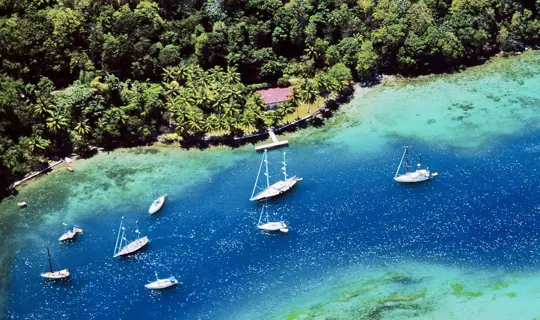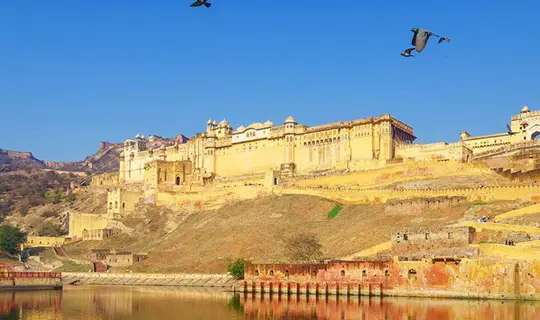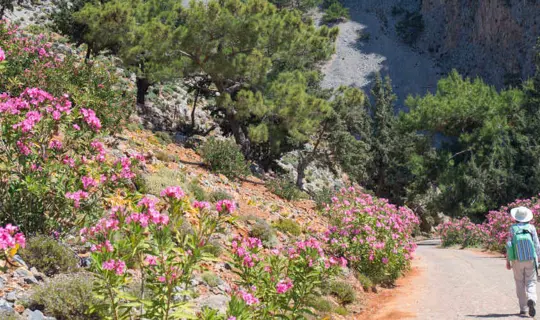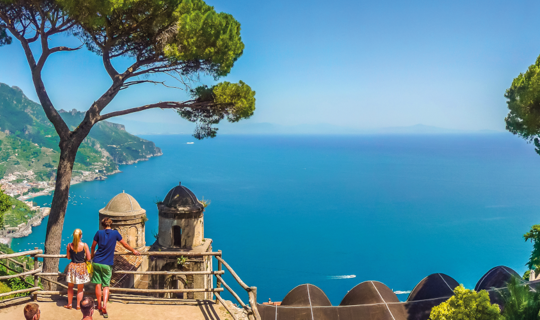FOLLOW TRAILS CARVED BY ROMANS, PILGRIMS AND SHEPHERDS TO DISCOVER SOME OF ITALY’S MOST ASTONISHING LANDSCAPES AND LOVELY TOWNS.
Like fine Italian wines, or the slow-cooked cuisine, everything in Italy is best enjoyed at a leisurely pace. To slow down and absorb the rolling countryside, soak up views of the early morning haze hanging over gemstone lakes, or take time to breathe in the scent of olive trees and hear sheep bells is a gift which Italy serves with the same finesse as a wood-fired pizza.
From the South Tyrol and the shores of Lake Garda, to the gentle beauty of Tuscany and the Amalfi Coast, ancient routes weave their way through the landscape where Romans and shepherds, Napoleons troops, and pilgrims walked in search of glory, enlightenment, or sometimes just sheep! To follow in their footsteps is to experience the best of the country, from its rolling hills and Italian heritage, to its history.
Foothills of Fairy-Tale Lakes
Framed by the towering Dolomite Mountains, Italy’s Lake District is a fairy-tale dream. In the midst of the green foothills, shimmering lakes reflect the blue skies and sunshine which bathe the region almost year-round. Lake Garda, Italy’s largest lake, might wear the crown in this kingdom, sitting serenely amidst a coastline dotted with regal castles, pastel villages, and glamorous towns, but it’s also home to a wealth of undiscovered beauty.
Walk in the far north of the lake to discover a region steeped in low alpine charm. Here in the South Tyrol, vineyards blanket the hills, and quaint towns like Arco, with its medieval castle atop a jagged limestone cliff, are ringed by staggering views. To walk in this region is to breathe the fresh, cool air which ripples across the lake, and to tread on ancient footpaths which have felt the pad of thousands of steps throughout time.
Lake Garda is a magnet for walkers, but a hop, skip and jump away are its beautiful sisters, Lake Molveno and Lake Ledro. Walk around Lake Molveno to discover trickling waterfalls, glass-clear water, and a shoreline dotted with archaeological remains. Stroll in the footsteps of conquering soldiers as you step over the Roman Bridge of Mezzolago on the old Roman way used by both the 13th century Count of Tyrol Mainardo II and Napoleon’s army in the 18th century. Climb up to see Napoleon’s Forts as you imagine the battles of this now serene landscape.
No trip to this northern, lake-strewn region would be complete without walking the historic Strada del Ponale. Connecting Lake Garda and Lake Ledro, the road was built in the 19th century, and closed to road traffic in 2004. Since then it has been a gift to hikers and cyclists, the panoramic route weaving from lake to lake through a lush countryside of craggy rocks, forested paths and eerie tunnels.
A Pilgrimage to Tuscany
Tuscany’s beauty is legendary, with hills blanketed in vines and stone villages exuding a traditional charm handed down through the ages. The small town of Pisa is the capital of this rural realm, with an appeal which lies in its simplicity, its wines, hearty cuisine, and ancestry. One of the region’s most rewarding walks is the Via Francigena, an ancient road which wove its way thousands of miles from Rome to Canterbury. Medieval pilgrims once made their slow procession along the route, and today bite-sized sections offer a glimpse into the past. The Tuscan section of Via Francigena covers 354 kilometres, and the segment around the town of San Gimignano is one of its finest.
Walk through olive groves and vineyards, over hills grazed by sheep, and past remnants of the Via’s heyday when castles and abbeys appeared along the way. As you approach the town of San Gimignano, 14 towers come into view. And it’s thanks to them that the pretty cobbled town was awarded UNESCO World Heritage status. It’s believed up to 72 of the towers once graced the countryside; prosperous families competing with one another for the largest and most imposing.
Frozen in Time
Head to the glittering seaside of the Amalfi Coast, loved by Hollywood’s glamour set for decades. This coastline has everything in just the right proportions. Sophisticated hotels and chic boutiques line the narrow streets of Positano and Sorrento, while mountains tumble dramatically into a turquoise blue sea. Away from the glitz of the coastal towns, the Amalfi Coast is much the same as it has always been. Ancient trails lead through tiny hamlets like Priora, where the terraced hills are filled with trees laden with plump olives, lemons and oranges.
Above it all, the Path of the Gods rises majestically, honouring its name as it traverses the clifftops. Linking the tiny villages of Bomerano and Nocelle, it’s an unforgettable walk where views of Monte Faito lie in one direction and Positano is but a fleck in the other. From hidden trails to one of the world’s most famous archaeological sites, the Amalfi Coast holidays brings the past to life. Pompeii stands as one of the most poignant and moving historic destinations on the planet, the entire Roman city buried in four metres of volcanic ash when Mount Vesuvius erupted in AD 79. After extensive excavations, its streets see daylight again and you can walk in the footsteps of a typical Roman town as you discover the ghostly ruins of houses, temples, shops, cafés and a grand amphitheatre.
From the northern mountains to the southern coast, Italy’s hidden trails bring the past to vivid life, transporting you to a time before motorways and metropolises. To walk these trails is to savour Italy as it’s meant to be enjoyed; slowly and wholeheartedly.
View all our solo walking tours








